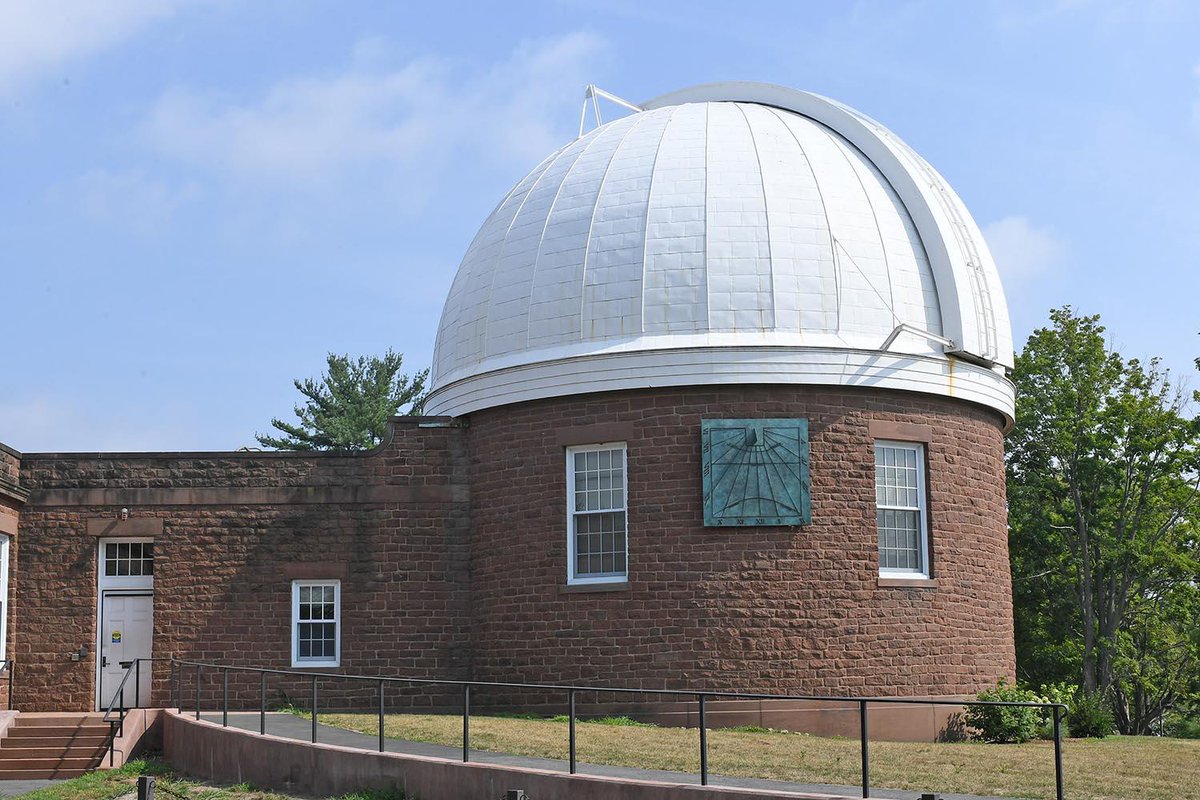
c/o Wesleyan University Twitter
The Astronomy Department will begin holding public observing sessions for the University community at the Van Vleck Observatory for the first time since March 2020. Led by astronomy majors and faculty members in the observatory on Foss Hill, observing sessions will occur every Wednesday with clear skies at 8 p.m.
Observing sessions are slated to return on a much smaller scale than before the pandemic. They will not be open to the general public, but students, faculty, staff, and their vaccinated families are welcome to attend.
“I think when we’re going to be able to fully open up to the public is going to [depend] partially [on] what the University’s policies are and partially the comfort level of the people who will be running the observing,” Associate Professor of the Practice in Astronomy Roy Kilgard said.
Before the pandemic, the Astronomy department hosted half-hour presentations run by students and faculty every Wednesday night at Van Vleck Observatory, regardless of the weather. If sky conditions were favorable, presentations would be followed by observing with the telescopes. Additionally, the department used to hold “Kid’s Night” programming twice a month on Fridays. This semester such events will be limited to clear nights on Wednesdays and will not be preceded by presentations. Kilgard anticipates that, at least initially, observers will be using the portable telescopes rather than the three large telescopes in the domes.
According to Kilgard, around 25 to 30 people would typically attend observing on Wednesdays before the pandemic. However, Van Vleck Observatory has seen as many as 400 visitors in a single night in the past.
“If one of the domes is open and people see the red light leaking out, students will just show up and ask if they can look at whatever you’re looking at, even if it’s not a random public night,” Kilgard said.
In addition to preventing public observing, the pandemic has also limited the Astronomy Department’s ability to incorporate observing into its classes. However, the two new telescopes for outdoor observing that the department purchased with COVID-19 funding, along with less restrictive COVID-19 policies this semester, have allowed astronomy classes to resume observing on campus.
“I’m very glad that this year’s observational astronomy class is able to actually use the telescopes and get their hands on them,” Kilgard said. “And then, hopefully, over the next couple of years, they’ll be the people who are able to help run those programs as we ramp up and expand and are able to do all kinds of normal things again.”
Kilgard emphasized that astronomy is a science that can be appreciated aesthetically, regardless of whether it inspires further curiosity or interest.
“Part of it is sharing the wonder of the universe,” Kilgard said. “Everyone is curious about the universe at some level too, and so I think part of it is sharing what we do and sharing our fascination with and love for science and astronomy in particular.”
Elias Mansell can be reached at emansell@wesleyan.edu.
Comments are closed